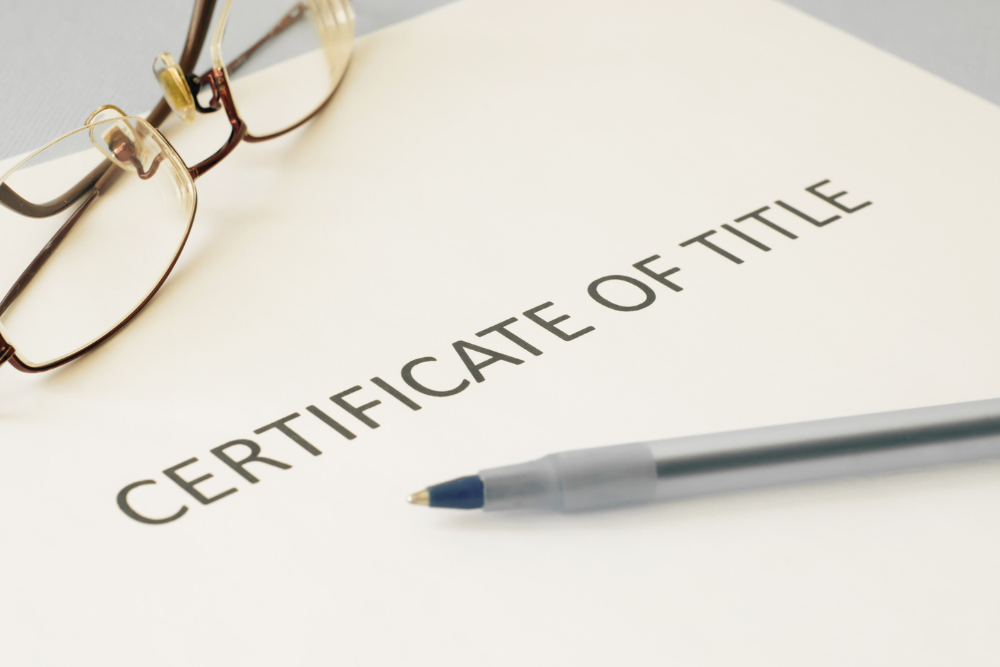Deeds and conveyances play an essential role in real estate transactions. A deed is a legal document that transfers ownership of real estate, while conveyance refers to the act of transferring property from one party to another. These legal processes are vital to establishing clear ownership, but they can also lead to complications if not handled correctly.
Many people encounter challenges related to deeds and conveyances, from title defects and fraudulent transfers to boundary disputes and restrictive covenants. Understanding these problems and knowing how to resolve them is crucial for protecting your property rights and ensuring a smooth transaction.
Deeds and Conveyances in New Jersey
In New Jersey, there are three primary types of deeds used in real estate transactions, each offering varying levels of legal protection to the buyer. Understanding the differences between these deed types is crucial for both buyers and sellers, as the degree of protection impacts the risk involved in the transaction. These deed types include:
General Warranty Deed
A general warranty deed is often used in typical real estate sales where the buyer wants assurance that the property they are buying is free of any legal complications. It’s commonly required by lenders as part of the mortgage process, as it provides a high level of security for both the buyer and the financial institution. It is the most secure and reliable form of transfer for a buyer because it covers both present and historical title issues, offering long-term protection against any potential future disputes regarding the property’s ownership. This type of deal is ideal for buyers who want maximum protection, especially in cases of large or significant real estate transactions.
Bargain and Sale Deed
Common in New Jersey, the bargain and sale deed implies that the seller has the right to sell the property but offers limited protection against any claims on the title. While the seller is presumed to own the property, they make no warranties or guarantees regarding the condition of the title or whether the property is free from encumbrances. This type is ideal for buyers in more straightforward transactions where the history of the property is well-known, such as when purchasing from a government agency or bank.
Quitclaim Deed
A quitclaim deed offers the least protection to the buyer. It transfers whatever interest the seller has in the property, but does not provide any warranties about the title. The seller does not guarantee that they own the property or that the title is clear. The buyer accepts the property “as is” without recourse if issues arise later. This is ideal for transactions between family members or when clearing up title issues, rather than traditional property sales. It’s also used in cases where the buyer is aware of potential title issues and accepts the associated risks.
Why Correct Deeds Are So Important
Correct deeds are crucial because they serve as the official, legally binding record of property ownership, ensuring clarity and accuracy in real estate transactions. A properly executed deed not only identifies the rightful owner but also protects against future disputes over property boundaries, ownership claims, and financial liabilities like liens or encumbrances. If a deed contains errors—such as misspelled names, incorrect legal descriptions, or missing signatures—it can result in delays, legal challenges, or even loss of ownership rights. Ensuring that deeds are correctly drafted, executed, and recorded is essential to protecting both the buyer and seller in any property transaction.
What does a deed lawyer do?
A deed lawyer plays a critical role in real estate transactions by ensuring that property transfers are legally sound and accurately documented. They are responsible for drafting, reviewing, and executing deeds, ensuring that the correct legal language is used and all necessary information is included, such as the names of the parties, legal property descriptions, and signatures.
Partnering with a skilled real estate lawyer during a property transfer provides you with added protection. A lawyer will ensure that your deed and other legal documents comply with Sammarro & Zalarick P.A, identify any errors, and address them promptly. If any ownership disputes or legal issues related to your deed arise, a real estate attorney can assist in resolving these challenges and, if needed, represent you in court to protect your rights.
The skilled real estate lawyers of Sammarro & Zalarick P.A provide all types of deed services, including:
- Adding or removing names to or from a deed
- Deed transfers from individuals to trusts, LLCs, and corporations
- Assessing deed transfer options for mortgaged assets
- Legal counsel in cases of deed and title challenges
Sammarro & Zalarick P.A: Legal Support for Secure Real Estate Transactions in Bergen County, NJ
At Sammarro & Zalarick P.A., we guide our clients through every legal aspect of property ownership, from sale and purchase agreements to deeds and land records. By entrusting your real estate transaction to our experienced legal team, you save time, avoid unnecessary complications, and reduce the risk of future legal challenges. Our commitment to detail ensures that your property transfers are handled with precision and in full compliance with New Jersey law.
Need assistance with deeds or real estate matters in New Jersey? Call (973) 890-0004 or contact us online today for a FREE NO OBLIGATION CONSULTATION.

